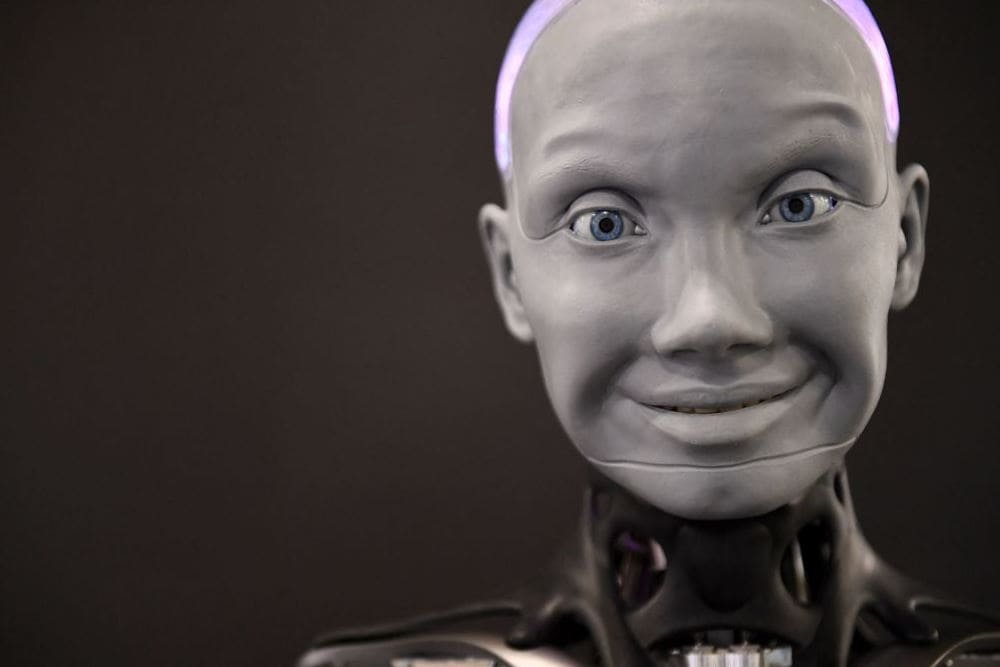Introduction
Artificial intelligence (AI) is significant due to its capability of automating complex processes and promoting enhanced decision-making and accuracy. Despite AI’s tremendous advantages, it is associated with some disadvantages linked to ethical issues and threats to humanity. One of the shortcomings related to AI is the lack of a sense of humor. In particular, AI cannot laugh since it cannot understand human humor, lacks conscious and experiential character, and inadequate technologies that support human-like interactions.
AI Cannot Understand Humor
AI cannot laugh like humans since it cannot understand humor. Engineers want to develop robotic machines that can reason like humans and mimic people’s behaviors, including predicting, planning, reasoning, and perceiving.1 In this case, scientists utilize data frameworks and algorithms to ensure that robots have perceptual, decision-making, and cognitive intelligence. On the other hand, humor is subtle and needs a lot of understanding of human context and social rules. As a result, it is challenging for robots to interact with humans and understand their context for it to respond to absurdity. AI learns internal data laws to realize and support its applications through training models.2 Hence, robots rely on programmed data to perform various activities. Consequently, AI cannot respond to its environment, making it challenging to recognize humor or laugh.
1. Yongjun Xu et al., “Artificial Intelligence: A Powerful Paradigm for Scientific Research”, The Innovation 2, no. 4 (2021): 1, https://doi.org/10.1016/j.xinn.2021.100179.
2. Xu et al., “Artificial Intelligence,” 2.

Lacks Experiential and Conscious Character
Robots cannot laugh because it lacks experiential and conscious character associated with emotions. AI lacks human qualities related to cultural sensitivity and intuition.3 In this case, it cannot read human expression or consider a specific situation correctly. Laughing is linked with feelings associated with emotion within someone’s body. Conversely, robots lack the emotional intelligence essential for people to manage and perceive relationships through responsive communication. In this context, AI cannot adapt to human intellect, influencing people to be aware of their bodies and situations. They laugh as physical and emotional responses to stimulation are linked with joy and happiness. The visual system, motor actions, and belief formation guarantee human laughter. However, robots lack aspects that enhance conscious feelings, and they cannot laugh physically.
3. Sudip Bhattacharya, “Artificial Intelligence, Human Intelligence, and the Future of Public Health”, AIMS Public Health 9, no. 4 (2022): 648, https://doi.org/10.3934%2Fpublichealth.2022045.
Inadequate Technology
Inadequate technologies that support emotional intelligence make it challenging for robots to laugh. Existing systems that match everyday conversations tussle with the perception of when to laugh.4 Creating a laughter model that responds to human emotions is a complex task. AI requires laughter stimuli that can recognize humor. However, existing systems encounter difficulties in speech recognition and timing, complicating the system’s real-time ability to respond to jokes. Moreover, laughter varies depending on the situation and environment. The type of laughter resulting as a reaction impacts the atmosphere of a conversation. AI experts require systems that recognize, detect, and create natural laughter situations. In turn, existing systems lack spoken dialogue applications that can express empathy and feelings to ensure biological interactions with human users. Therefore, insufficient technologies for making AI more human-like do not allow robots to laugh.
4. Koji Inoue, Divesh Lala, and Tatsuya Kawahara, “Can a Robot Laugh With You?: Shared Laughter Generation for Empathetic Spoken Dialogue”, Frontiers in Robotics and AI 9 (2022): 2, https://doi.org/10.3389/frobt.2022.933261.
Conclusion
AI cannot laugh due to insufficient technologies that support emotional intelligence, lacks experiential and conscious character, and cannot detect humor. AI is programmed through frameworks and algorithms, making it challenging to see human humor. Besides, AI lacks human qualities linked with intuition. In turn, inadequate technologies that mimic human interaction have made it difficult for AI to recognize and respond instantly to human emotions.
Bibliography
Bhattacharya, Sudip. “Artificial Intelligence, Human Intelligence, and the Future of Public Health.” AIMS Public Health 9, no. 4 (2022): 644-650. https://doi.org/10.3934%2Fpublichealth.2022045.
Inoue, Koji, Divesh Lala, and Tatsuya Kawahara. “Can a Robot Laugh With You?: Shared Laughter Generation for Empathetic Spoken Dialogue.” Frontiers in Robotics and AI 9 (2022): 1-11. https://doi.org/10.3389/frobt.2022.933261.
Xu, Yongjun, Xin Liu, Xin Cao, Changping Huang, Enke Liu, Sen Qian, Xingchen Liu et al. “Artificial Intelligence: A Powerful Paradigm for Scientific Research.” The Innovation 2, no. 4 (2021): 1-21. https://doi.org/10.1016/j.xinn.2021.100179.


